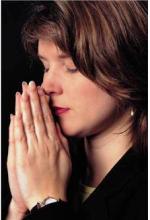I am aware this is a sensitive topic as we may have different perceptions and beliefs depending on how we are raised and how our experiences have shaped them, so when I say my thoughts here I am purely sharing my perspective
The bipolar Christian may have many questions about topics related to their faith and the disorder.

It is natural to be confused about how, when we have a serious mental health challenge, we can still be made in the image God, or, as Psalm 139 says:
“I am fearfully and wonderfully made.”
We can just as easily ask “Why did You make me diabetic?”, and then of course there is the classic “Why does God let bad things happen to good people?”
We have free will and are fallen and so there is much imperfection in the world. God does not “make” anyone mentally or physically ill, anymore than he is responsible for any of life’s other
misfortunes or problems.
What He has done is provided us with doctors and medicine that make it possible to live a healthy life.
Reminder
God never leaves us. Even in the most acute bouts of mania or depression, God stays with us.
It is true that there may be periods where our minds are so disordered by our illness that we do not feel God’s presence. We cannot pray, and we cannot study scripture. However, my experience has been that the more I build my faith and my relationship with God when I am in between episodes, the easier it is to find my way to Him during a relapse or mood swing.
For me as a bipolar Christian, I believe staying well depends on both faith and works. I cannot do it alone, but I also have an obligation to do what I can.
Great resource for Christians with Bipolar Disorder
Does the bipolar Christian sin?
My perspective is that bipolar disorder does not give the bipolar Christian a “free pass”.
Although my thoughts may at times be chaotic, irrational, or delusional, if I sin I am still separating myself from God, and that is never part of God’s plan for me.
Bipolar disorder is certainly an explanation for bad behavior but is it an excuse?
I think maybe it is more like an extenuating circumstance, for example the way that mitigation is taken into account in our criminal justice system.

When I had my first full blown manic episode I was undiagnosed and untreated. I did some terrible things that became a source of profound shame and regret. Were these terrible things sins? Absolutely! Would I have acted this way if I were not experiencing an acute manic episode? Never! So am I trying to have it both ways? How can this “diminished responsibility” be reconciled with my belief that sin is still sin and offends God?
For me as a Catholic, I can look to Church doctrine and find some comfort. Sin must be committed with “full knowledge” and “deliberate consent”. The delusional thinking of bipolar mania makes full knowledge and deliberate consent impossible.
For me, my life is divided into two parts – Before Diagnosis and After Diagnosis.
Now that I know I have bipolar disorder I am responsible for managing it, as much as humanly possible given my challenges with this condition. It would definitely be a sin to ignore the strategies, on purpose, that keep me well and which help me avoid or minimize relapses.
For example, as a bipolar Christian I am accountable for taking my medication, seeking therapy, following my Wellness Plan by exercising daily, sticking to my Bipolar Diet, and honoring my Treatment Contract with my spouse. However, if I relapse, that is because I am human. I have to leave room to forgive myself.
Mania – A Christian Perspective
Find a Christian therapist

A big issue for the bipolar Christian is finding the right therapist.
Secular fundamentalism (the new “religion” of elevating political correctness over traditional faith) makes it hard for some therapists, even if Christian, to put relationship with God at the center of the therapeutic process.
So dig a little.
With any therapist it is ok to ask them about both their faith AND how it influences their practice of therapy.
There ARE practitioners of faith based therapy and, for a Christian, it is well worth the effort to find one.
The pivot point of faith based therapy is exactly the same for a person with bipolar disorder as it is for anyone else. That is, to focus our energy on God.
There should be no conflict between our faith and what we learn in therapy.1
Today it is well recognized that the practice of our faith contributes to a sense of peace and psychological well-being. A balanced and healthy Christian faith and practice can contribute to an overall sense of psychological well-being for persons.
A skilled therapist will work with us to develop a healthy and strong personal identity, just as we all should strive to do anyway.
As Christians we already know that God’s teachings provide the attitudes, values, morals, and customs that are the formula for a healthy and fulfilling lifestyle.
Controversial beliefs about bipolar & Christianity

It is not possible to argue through all of the theological issues involved in a single web page. Also, deeply held beliefs are not easily changed. All I can do is share my own experiences and beliefs.
As a bipolar Christian I believe my illness has a biological basis, and although it has spiritual dimensions, it is not, at root, the work of the devil. However, the devil can work through it by creating temptation.
For example, I may be tempted to the sin of pride by thinking I can manage my illness myself, without God. Or I might be tempted to the sin of laziness and not stick to daily exercise, my Bipolar Diet, and the other elements of my Wellness Plan.
Also, I firmly believe that God works through doctors and medicines and that they must be embraced. Enough said.
References:
1http://www1.cbn.com/health/my-struggle-with-bipolar-disorder
 Medically reviewed by
Medically reviewed by
6 Comments
This article was so incredibly helpful. I deal with my ex husband who is bipolar and I believe my 12 year old son is as well. It’s been very difficult for me to adjust to divorce and a child with this disorder but I’ve done counsel for over 10 years to better understand it and help both my ex husband and my son. I truly will hold on to this article for my son and I pray for my ex husband everyday to come back to Jesus. I hope he does so I can share this with him as well. May the Lord continue to use you to help witness to others with this disorder. It’s a blessing to see how amazing the Lord has worked on your heart. Thank you!
This was great for insight however, currently I’m facing a dilemma. I’m getting help through counselling a recently changed my dosage and have been consistent in the word and prayer, but tonight has been one of the roughest nights of me psychoanalysing every decision I make. I know that God doesn’t think we’re perfect and he doesn’t expect us to be. I’m feeling a little tinge of the manic depressive state and the irritation is back. Prayer does help, but I can’t find myself wanting to rn.
Thank you for the article though.
Please respond if you have the time!
Hi Blair, i don’t know if you’ll get this, but remember the ressurection and the suffering you have now will be remembered by the Lord.
This article is a true blessing in disguise. I am 53 years old and have successfully managed to alienate every person who has even been in my life. I have suffered from this mental illness for as long as I can remember. I have been on medication for 14 years but recently realized it wasn’t the right medication and it is like taking flinstones. The Lord Jesus Christ is my life and I have studied theology and history for many years now. I have been looking on and off (mainly off) for a bi-polar Christian article which is both very well written, intelligent and just screams out to me, “I am not alone and there are other Christians out there who feel just like I do!!” I think your article means more to a lot of us out there who have suffered from this alone for so long, that they reach a point where they realize that they actually need help. I am kind of in a bind since I have lost my job of 20 years, my medical insurance, and basically my life. I am trying to have a real faith that God does have a real plan for me in the future and although I am hanging on by a thread, your article is the door that will lead me to better things. When they say that there are things worse than death…… Well…….
My niece is acting the same way as his bipolar father. However she went to the psychiatrist recently on her mum’s suggestion. Her mum paid for the consultation. After the appointment the doctor came out saying that she was completely normal and started to lecture at my sister (her mum) saying she needed to accept that her daughter didn’t want to live to her mum’s Christian standards (regarding adultery, burglary, etc). My sister doesn’t know what my niece said but suspects told the doctor just what she wanted to say. Is it so easy to deceive psychiatrists? Pls comment if you find time. Thanks
Thank you so much for this article. I am a devout Christian and I was recently diagnosed with bipolar. I’ve been struggling to find God in the madness and your writing has really helped my process. Thank you so much!